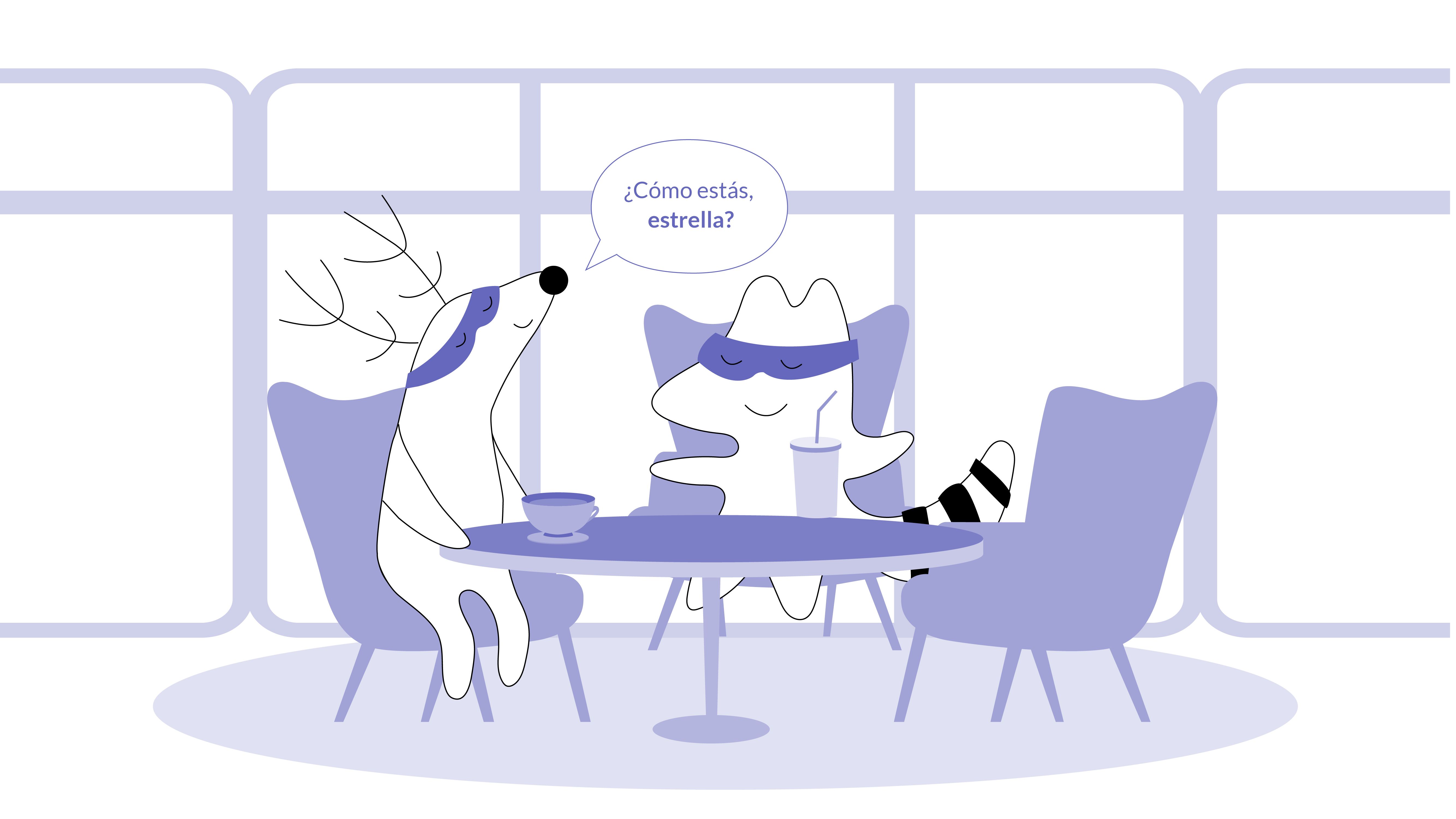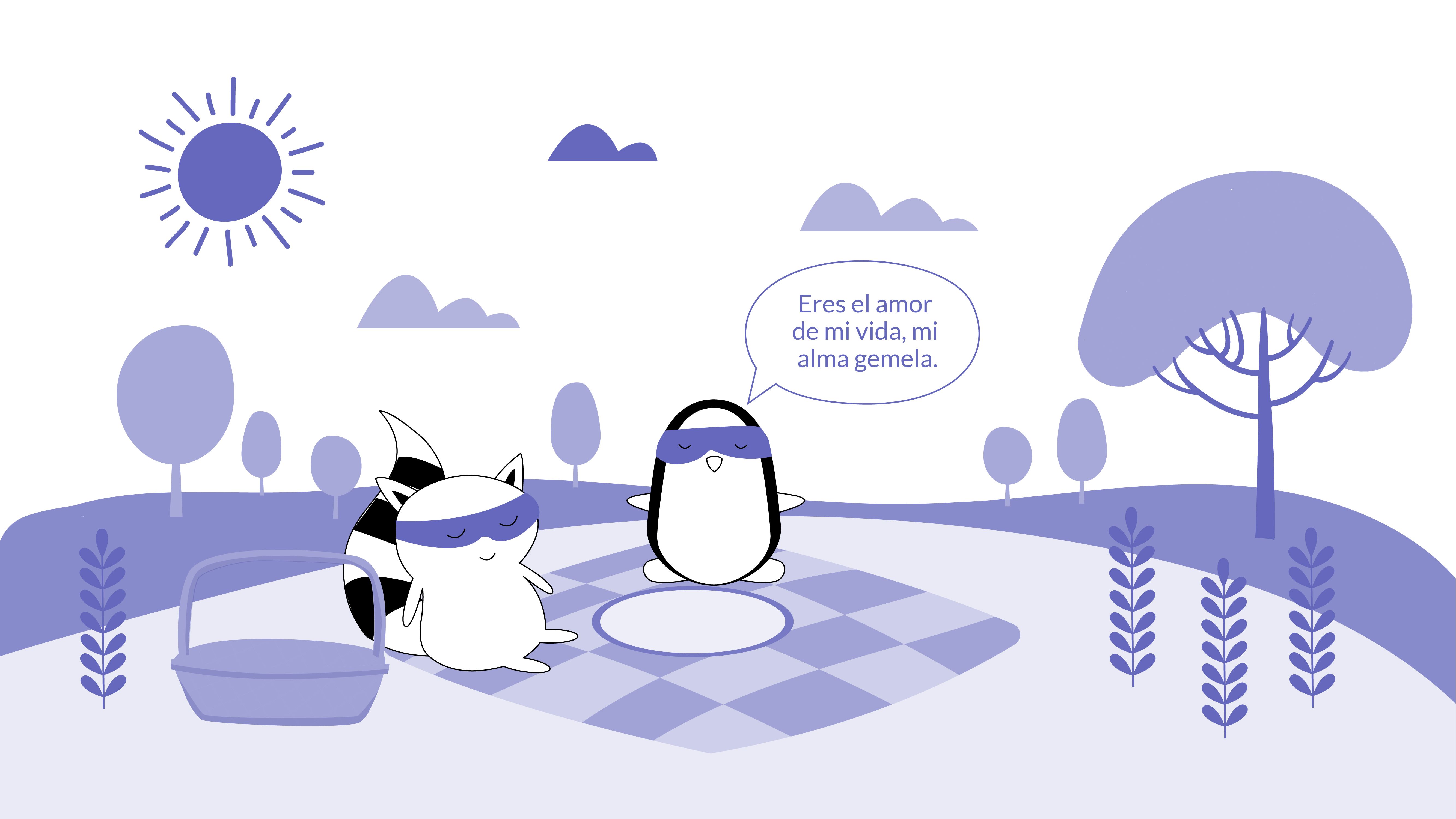
Are you looking for a way to add a little romance to your life? Look no further than the Spanish language! The Spanish language and culture are full of emotion, including many unique words of endearment for expressing your love and affection to those around you.
From the classic mi amor (my love) to the more playful cariño (darling), Spanish offers a range of sweet Spanish terms of endearment that can make anyone feel special. And, with more than 500 million speakers worldwide, there are plenty of opportunities to use these words in everyday life!
Discover how to use them properly while learning some interesting cultural nuances along the way. By the end of this article, you should have a few cute Spanish nicknames and even some spicy phrases up your sleeve.
Learn Spanish with Langster
Cute Spanish Nicknames
One of the most common ways to express affection in Spanish is by using nicknames when referring to your loved ones, whether it’s your family members or Spanish-speaking friends.
These Spanish terms of endearment can range from simple adjectives that describe a person’s physical characteristics to more complicated phrases that reflect their personality or situation.
Some of the cutest and most popular nicknames used in many Spanish-speaking countries include:
Spanish
English
amor mío, mi amor
my love
mi ángel
my angel
cariño
darling
querido, querida
dear
guapo, guapa
handsome, beautiful
miel
honey
mi sol
my sun
mi cielo, mi cielito
my sweetheart, my darling
This is a deeply affectionate way to refer to your romantic partner It directly translates to my little heaven but is essentially used as my sweetheart or my darling.
Spanish
English
mi luz
my light
estrella
star
Reina, Rey
Queen, King
These are used as deeply loving and respectful nicknames. Saying mi reina or mi rey emphasizes how highly you think of your partner and that you put them in a significant spot in your life.
Spanish
English
mi corazón
my heart, my sweetheart
mi vida
my life
This nickname is commonly used by romantic partners wishing to tell one another how much they mean to each other. It emphasizes the significance that one has in the other’s life.
Spanish
English
mi tesoro
my treasure
It’s an endearing nickname for your partner and implies how much you value them in your life.
Spanish
English
mi alma
my soul, my soulmate
This is a common nickname used by native Spanish speakers to refer to each other in a deeply appreciative and loving context, implying that they are significant others to each other.
Spanish
English
mi niño precioso, mi niña preciosa
my precious little boy, little girl
nene, nena
baby boy, baby girl
Make sure to add the proper masculine or feminine endings depending on the person you are speaking to. After all, following gender agreement rules is mandatory in the Spanish language — yes, even when you’re overflowing with romantic feelings.
While it might sound like a bummer, try to see it as a great motivational boost to proceed with your language-learning journey!

How to Say I Love You in Spanish
Saying "I love you" is a powerful expression of affection and devotion. In Spanish, there are many ways to express this feeling, and each phrase carries its own nuances and cultural context.
Here are a few examples of the most common ways to say "I love you" used in Spanish-speaking cultures:
Te Quiero
Te quiero is the most common way to say "I love you" in Spanish. It is a simple and direct expression of affection, similar to "I care for you" or "I want you." It can be used for friends, family members, or romantic partners.
Spanish
English
Te quiero mucho, mi amiga.
I love you so much, my friend.
Te Amo
Te amo is a more intense and passionate way to say "I love you" in Spanish. It is often reserved for romantic partners and carries a deeper emotional connotation. It can be translated as "I adore you" or "I worship you."
Spanish
English
Te amo más que nada en el mundo.
I love you more than anything in the world.
Te Adoro
Te adoro is a poetic and romantic way to say "I love you" in Spanish. It conveys a sense of devotion and admiration, similar to "I adore you" or "I cherish you."
Spanish
English
Te adoro, mi amor.
I adore you, my love.
Te quiero con todo mi corazón
Te quiero con todo mi corazón literally means "I love you with all my heart." This phrase is often used to emphasize the depth and sincerity of one's feelings.
Spanish
English
Te quiero con todo mi corazón, mi familia.
I love you with all my heart, my family.
Te amo hasta la luna y de regreso
Te amo hasta la luna y de regreso is a poetic and whimsical way to say "I love you to the moon and back." It conveys a sense of infinite love and devotion.
Spanish
English
Te amo hasta la luna y de regreso, mi vida.
I love you to the moon and back, my darling.
Eres mi todo

Eres mi todo means "You are my everything." This phrase is often used to express the importance and centrality of a person in one's life.
Spanish
English
Eres mi todo, mi amor. No sé qué haría sin ti.
You are my everything, my love. I don't know what I would do without you.
No puedo vivir sin ti
No puedo vivir sin ti means "I can't live without you." This phrase is often used to express the intensity of one's feelings.
Spanish
English
No puedo vivir sin ti, mi cielo. Eres mi razón de ser.
I can't live without you, my darling. You are my reason for being.
Me haces feliz
Me haces feliz means "You make me happy." This phrase is often used to express gratitude and appreciation for a person's positive impact on one's life.
Spanish
English
Me haces feliz, mi amor. Cada día a tu lado es un regalo.
You make me happy, my love. Every day with you is a gift.
Eres el amor de mi vida
Eres el amor de mi vida means "You are the love of my life." This is one of the most powerful Spanish terms of endearment. It is a powerful declaration of love and commitment and is perfect for expressing deep and long-lasting feelings for someone special.

It can be used in a romantic context with a partner or even in a platonic way with a close friend or family member who holds a special place in your heart.
Spanish
English
Eres el amor de mi vida, mi alma gemela. Siempre estaré a tu lado.
You are the love of my life, my soulmate. I will always be by your side.
How Do They Show Affection in a Spanish-Speaking World?
In Spanish-speaking countries, expressing affection towards loved ones is an important part of the culture. Apart from using terms of endearment, there are other simple yet thoughtful ways you can express your feelings:
- Physical touch, such as hugging, kissing, and holding hands. In some countries, such as Spain and parts of Latin America, it is customary to greet friends and family members with a kiss on the cheek.
- Food. In many Latin American countries, food is an important part of the culture, and preparing a special meal or sharing a favorite dish with a loved one can be a way to show how much you care. Additionally, offering to cook for someone or bringing them a treat is a common way to express affection.
- Gift-giving. Whether it's a small token of appreciation or a grand gesture, giving a gift to a loved one can be a way to express how much they mean to you. This can include anything from flowers and chocolates to jewelry and romantic getaways.
- Spending quality time together. Whether it's going for a walk, watching a movie, or simply having a conversation, spending time with someone you care about is a way to strengthen the bond between you.
As you can see, regardless of the specific method, the goal is always the same: to show your loved ones how much you care about them.
The Bottom Line

Expressing affection is a significant part of the culture in any Spanish-speaking country.
From cute and playful Spanish nicknames to more serious and romantic phrases, each expression of love carries its own cultural nuances and context. Additionally, sharing food, giving gifts, and spending quality time together are all crucial ways to express affection toward your loved ones.
Whether you're speaking to your partner, family member, or a friend, expressing your affection in Spanish is a beautiful way to connect with those around you. So, make sure to download our Langster app and stay on top of your language learning!
Whether it's through a heartfelt Te amo or a sweet nickname, Spanish proves that even non-native Spanish speakers can master this language of love. Let it guide you toward creating deeper connections and adding a touch of romance to your life!









